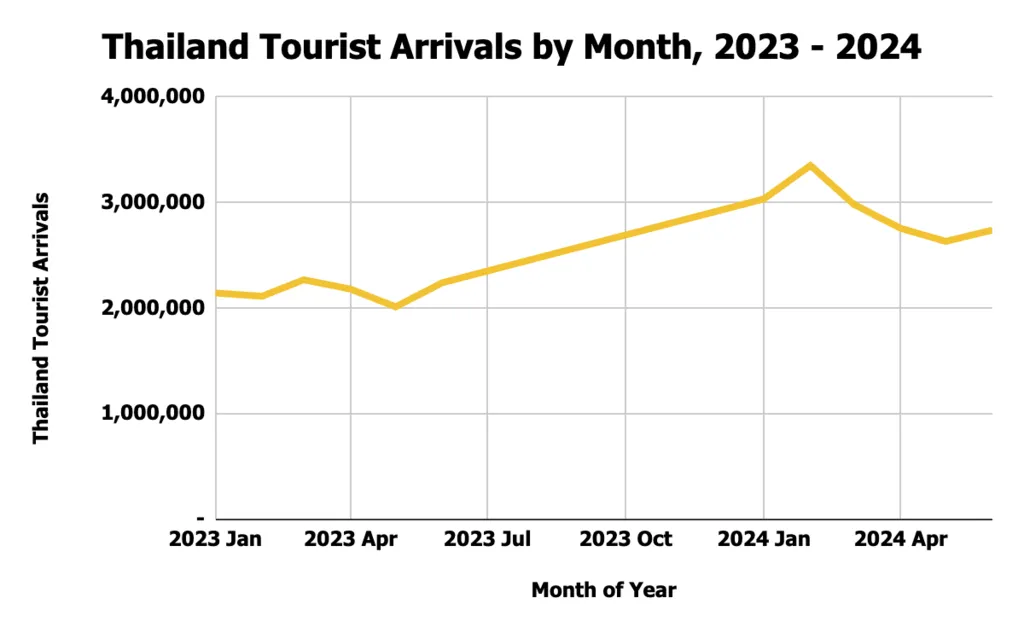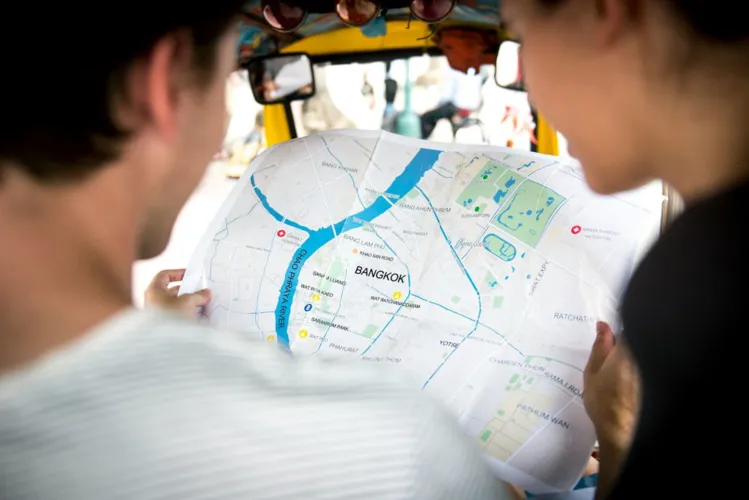Thailand is making major strides in promoting responsible travel. As global awareness of sustainability grows, Thailand sustainable tourism initiatives are playing a bigger role in shaping the country's future. The sector is expected to grow from USD 33.2 million in 2024 to USD 143.9 million by 2034, driven by public and private efforts to balance economic growth with environmental care.

Read Also: Thailand Tourism Industry Recovery Eyes New Strategies & Heights
Thailand Sustainable Tourism Initiatives: Green Tourism as National Strategy
The Tourism Authority of Thailand (TAT) has launched the “7 Greens” program, a national framework to promote eco-friendly tourism. This initiative encourages actions in seven key areas, ranging from green logistics to green activities. The goal is to reduce environmental impact while protecting cultural heritage.
One standout project is the Green Hotel Plus Phuket Sandbox initiative. It aims to certify 600 hotels in Phuket by 2026 under internationally recognized green standards. These certifications require hotels to reduce carbon emissions, manage waste effectively, and adopt energy-saving technologies. This push is transforming the hospitality sector, making eco-conscious travel the new standard.
Tourism Growth Meets Environmental Reality
Tourism remains a powerful economic engine for Thailand, generating 1.67 trillion baht in revenue last year. Yet this boom also comes at a cost. For example, Phuket alone emits 3.16 million tonnes of greenhouse gases annually. This contrast between economic gain and environmental strain is prompting urgent reforms across the industry.
Hotels and tour operators are under increasing pressure to implement greener operations not just to meet regulations, but to satisfy a growing wave of eco-conscious travelers. Those who fail to adapt risk falling behind.
Read Also: Thailand Green Energy Transformation: Market Insights
Transport and Community at the Core of Thailand Sustainable Tourism Initiatives
Thailand’s approach to sustainable tourism goes beyond hotels. Cities like Bangkok, Phuket, and Chiang Mai are expanding public transportation and introducing bike-sharing programs to cut carbon emissions.
Meanwhile, community-based tourism (CBT) is gaining traction, especially in Northern Thailand. In areas like the Mueang Khong subdistrict of Chiang Dao, local communities are integrating agroecology and cultural experiences into tourism. This supports biodiversity, enhances food security, and boosts local incomes.
Read Also: Bright Future in Thailand AgriTech Market Growth, Gains Global Eyes
The recognition of Doi Chiang Dao as a UNESCO biosphere reserve has also encouraged multi-stakeholder collaboration. It’s becoming a model for how tourism, conservation, and local development can work together.
Hospitality Responds to the Challenge
As part of Thailand’s green transition, hotels and resorts are rethinking their business models. From zero-waste kitchens to low-carbon operations, sustainability is becoming essential and no longer optional. The Green Hotel Plus certifications in Phuket are only the beginning.
Hotels that meet sustainability standards are not only reducing environmental harm but are also attracting new market segments. This is particularly appealing to millennials and Gen Z travelers who prioritize eco-responsibility.
A Greener Future for Thai Tourism: Thailand Sustainable Tourism Initiatives
Thailand is proving that tourism growth and sustainability can go hand in hand. With a projected 15.8% annual growth in its sustainable tourism sector, the country is positioning itself as a leader in eco-friendly hospitality.
Through national policies like the 7 Greens, large-scale hotel certification projects, and grassroots community initiatives, Thailand sustainable tourism initiatives are building a future where travel benefits both people and the planet.







